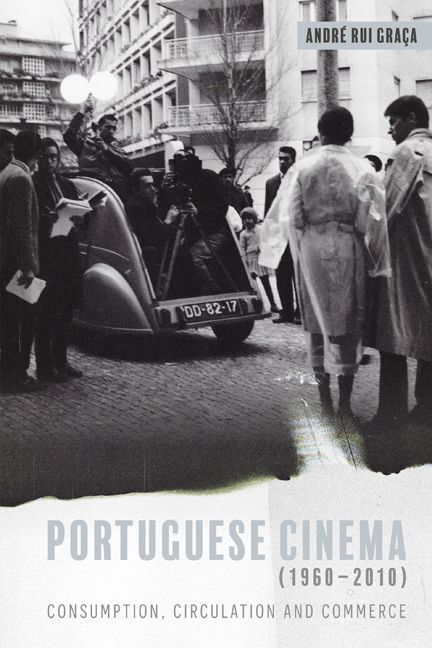Book contents
- Frontmatter
- Contents
- List of Illustrations
- Foreword
- Preface
- List of Abbreviations
- Introduction
- 1 The ‘Unsuccess’ of a National Cinema
- 2 Spectators and Contrasts in Culture
- 3 Visibility, Artistic Prestige, and Circulation
- 4 Portuguese Cinema Laws (1971–2006)
- Conclusion
- Appendix 1
- Appendix 2
- Bibliography
- Index
3 - Visibility, Artistic Prestige, and Circulation
Published online by Cambridge University Press: 06 April 2021
- Frontmatter
- Contents
- List of Illustrations
- Foreword
- Preface
- List of Abbreviations
- Introduction
- 1 The ‘Unsuccess’ of a National Cinema
- 2 Spectators and Contrasts in Culture
- 3 Visibility, Artistic Prestige, and Circulation
- 4 Portuguese Cinema Laws (1971–2006)
- Conclusion
- Appendix 1
- Appendix 2
- Bibliography
- Index
Summary
Film Festivals, Artistic Prestige, and Criteria
Along with the number of spectators, the national and international visibility of a cinematic practice is one important indicator in ascertaining its impact and overall perceived prestige. After spectatorship, the relationship that Portuguese cinema maintained with the film festival circuit (i.e. the non-officially organised but nonetheless cooperative network of film festivals across the world) and vice versa is an important consideration. This is particularly relevant for three reasons: (i) the artistic cachet endowed by festivals is both a means to understanding the place and value of some directors and, by extension, their nations in the film market and a significant factor for distribution and further circulation; (ii) as will be seen in this chapter, festivals have been places where games of geopolitical power come into play – a broader situation that should also be considered given the core-periphery binomial already mentioned; and (iii) Portuguese filmmakers, since at least the 1960s, have directed their practice towards a cinephile context of reception in which festivals play a pivotal role. As Cindy Wong put it: ‘festivals and the people who create and re-create them thus shape what films we as audiences and scholars will see, what films we respect or neglect, and often, how we read such cinematic works’ (Wong 2011, 1).
This chapter is divided into two parts. The first one focuses on visibility and film festivals, and the second on distribution. The main goal is to understand the relationship between Portuguese contemporary cinema and the mercantile context in which it is inserted. At its core will be the analysis of the complex relationship between power, market, prestige, and art. The conclusion will assess the presence (or absence) of Portuguese films on the international scene and how its specificities have shaped the overall trajectory of contemporary Portuguese cinema and its visibility.
This study also aims to identify and assess the various difficulties that Portuguese films have encountered throughout the years and which have prevented Portuguese cinema from reaching a consolidated top spot alongside other national cinemas. It is true that in the last seven years of the 2020s Portuguese filmmakers have amassed a considerable number of awards in A-list festivals (mainly Berlin and Cannes) and have been given unprecedented attention.
- Type
- Chapter
- Information
- Portuguese Cinema (1960–2010)Consumption, Circulation and Commerce, pp. 133 - 176Publisher: Boydell & BrewerPrint publication year: 2021



